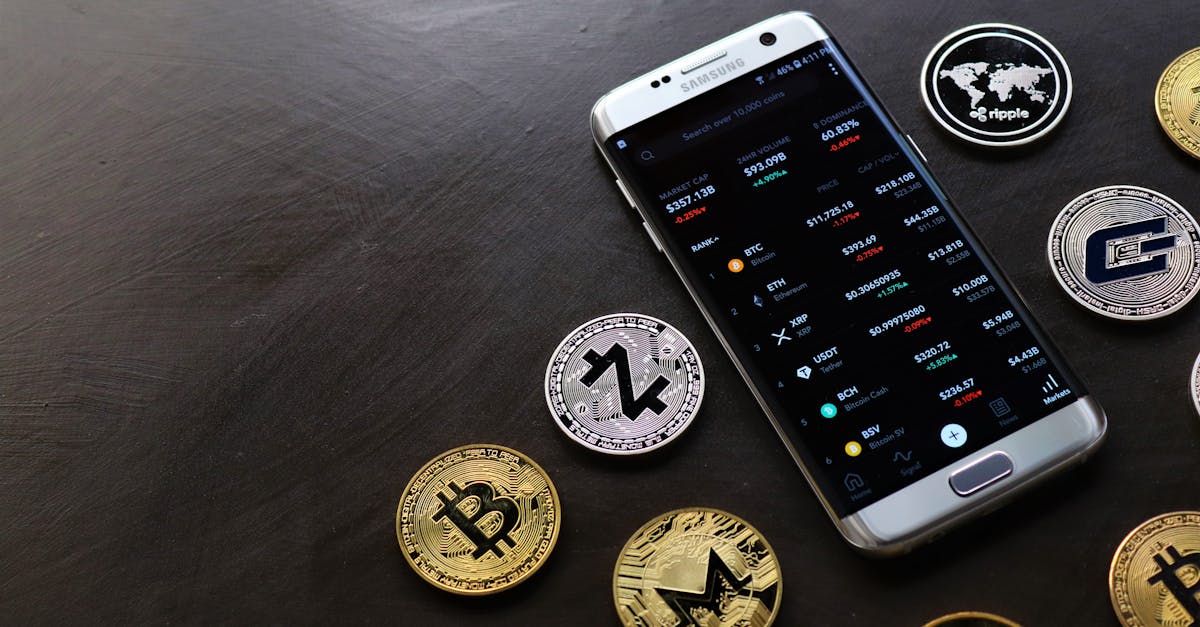2024 Trends in Digital Wallets
Introduction to Digital Wallets
In 2024, digital wallets are at the forefront of finance and technology, shaping how people store and manage their funds. With smartphones now ubiquitous, digital wallets provide a seamless payment experience without the need for physical cards. Companies like Apple, Google, and PayPal are driving innovations, incorporating advanced features to enhance security and user experience. The adoption of digital wallets is not just a trend but an evolution towards a cashless society. Their influence is vast, cutting across borders and affecting global commerce and individual spending habits. Understanding these trends offers valuable insights into the future trajectory of financial systems.
Advertisement
Rise of Biometric Technology
An integral part of digital wallets' evolution is the increase in biometric technology for added security. Biometrics like fingerprint scanning and facial recognition ensure that transactions are more secure than traditional PINs. This technology provides a convenient, faster authentication process for users, fortifying their financial privacy. Companies continually seek to enhance data protection, and biometrics have become a cornerstone in preventing unauthorized access. Furthermore, the ability to personalize payment methods through biometrics enhances user engagement, making transactions more intuitive. As these advances continue, consumer trust in digital wallets is expected to rise further.
Advertisement
Integration with Blockchain Technology
In 2024, digital wallets are leveraging blockchain technology to provide secure and transparent transactions. Blockchain, the underlying tech for cryptocurrencies, offers an immutable ledger that enhances transaction veracity. As consumers become more familiar with cryptocurrencies, digital wallets are expected to support not only digital currency storage but also traditional currency exchanges. This integration adds a layer of complexity, offering users more flexibility and choice in handling funds. Additionally, smart contracts, enabled by blockchains, allow for automated, secure agreements between entities, cutting down bureaucratic processes. This marriage of digital wallets and blockchain paints a picture of a more interconnected financial landscape.
Advertisement
Contactless Payment Revolution
Contactless payment, though not new, will continue to revolutionize how consumers approach shopping. As more businesses upgrade their point-of-sale systems, digital wallets lead the way with Near Field Communication (NFC) technology, allowing seamless cashless transactions. The convenience of tapping a device to pay is unparalleled, offering quick transitions at checkout and minimizing contact, which remains crucial post-pandemic. Retailers recognize the demand for faster, hassle-free payment options, driving an increase in NFC-enabled devices. This trend highlights the modern consumer's shift towards expecting innovation in everyday transactions and the inclination for minimal interruptions during payments.
Advertisement
Enhancements in Financial Literacy
Digital wallets are also playing an unexpected role in financial literacy and personal budgeting. Many digital wallet platforms now include tools for tracking spending habits and generating reports, encouraging users to better understand their financial positions. Personalized financial advice integrated within these apps assists users in making informed spending and saving decisions. By transforming smartphones into financial hubs, digital wallets redefine personal finance management, making it more accessible and digestible. This empowers individuals to take control of their financial health, fostering a generation of well-informed consumers who can leverage technology for financial growth.
Advertisement
Digital Wallets in Emerging Markets
The role of digital wallets is becoming increasingly significant in emerging markets. With a substantial portion of the global population lacking traditional banking access, digital wallets provide an inclusive financial solution. As smartphone penetration grows, digital wallets pave the way for financial engagement in previously underserved areas. These platforms fill the gap by enabling access to e-commerce, peer-to-peer transactions, and international remittances. Emerging markets witness a significant boost in financial activities due to this accessible technology. Such trends underline the transformative power digital wallets hold in promoting financial inclusion and global economic participation.
Advertisement
Increased Privacy and Security Measures
As reliance on digital wallets grows, so does the emphasis on security. Service providers focus on encrypted communication, multi-layered security protocols, and continuous monitoring for unauthorized access. Privacy concerns are met by ensuring compliance with global data protection regulations. This proactive stance against potential threats highlights an era where companies prioritize consumer safety above all. Enhanced security measures not only safeguard user funds but also promote confidence in digital transactions. By continuously innovating in security, digital wallets maintain their reputation as safe alternatives to traditional banking methods.
Advertisement
Partnerships and Ecosystem Expansion
Partnerships represent another robust trend in the growth of digital wallets. Collaborations between fintech companies, banks, and retailers expand the scope and usability of digital wallets. Such alliances enable the creation of comprehensive ecosystems where users can manage multiple financial services in one place. For instance, partnerships with ticketing platforms, service providers, and merchants offer diverse utilities within digital wallet apps. These alignments boost consumer satisfaction due to the increased accessibility to goods and services, fostering a more interconnected market environment. As ecosystems expand, digital wallets become more than just payment tools, evolving into comprehensive financial platforms.
Advertisement
Sustainability and Ethical Consumerism
Finally, sustainability and ethical consumerism are gradually making their way into the world of digital wallets. The tech industry is increasingly focused on reducing its environmental footprint by promoting paperless transactions and supporting eco-friendly initiatives. Some digital wallet providers offer options to offset carbon footprints, incentivizing eco-conscious spending. Furthermore, ethical investments and spending are highlighted within digital wallets, offering users content that aligns with their values. This trend resonates with the growing environmentally-aware consumer base that prioritizes sustainability in their financial practices. As digital wallets evolve, they have the potential to support a more sustainable and responsible financial ecosystem.
Advertisement
Conclusion: The Future of Digital Wallets
Digital wallets are undeniably revolutionizing the financial sector in 2024, steering it towards a technologically advanced and inclusive future. Their integration with cutting-edge technologies such as biometrics and blockchain presents vast opportunities for innovation. By catering to emerging markets and promoting financial literacy, digital wallets exemplify a shift towards inclusive finance. Security enhancements continue to build consumer trust, delineating digital wallets as not only convenient but also as highly secure payment options. As we progress, the scope of digital wallets will likely grow, fostering a more interconnected and eco-conscious financial landscape worldwide.
Advertisement





